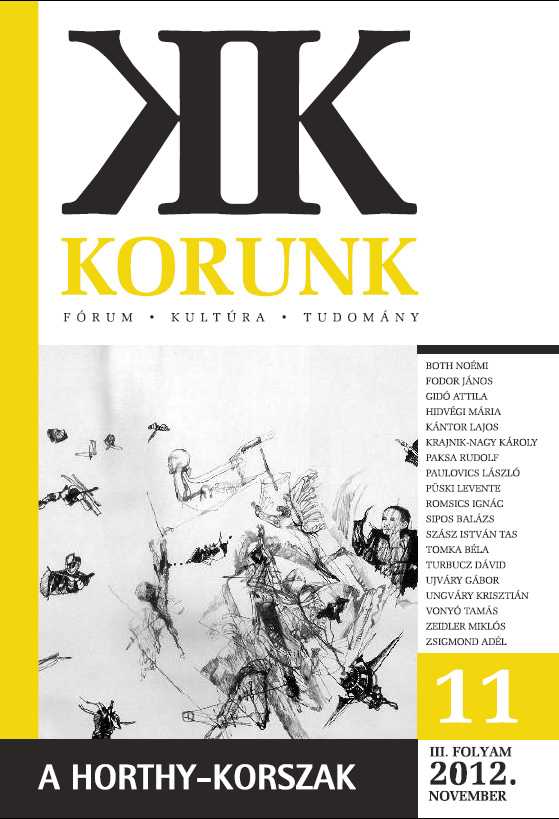A szélsőjobboldal a Horthy-korban
The Extreme Right in the Horthy Regime
Author(s): Rudolf PaksaSubject(s): History, Political history, Recent History (1900 till today), Interwar Period (1920 - 1939), WW II and following years (1940 - 1949)
Published by: Korunk Baráti Társaság
Keywords: far-right politics; Győző Istóczy; National Socialism; Hungarism, Ferenc Szálasi; Arrow Cross Party
Summary/Abstract: The roots of far-right politics in Hungary, which is a widely varied phenomenon in itself, reach back to the 19th century. The birth of the “idea of independence”, nationalism, imperial ambitions and Turanism all date back to this century. The ideas were associated in the final third of the same century with anti-modernist concepts like anti-Semitism, directed against Jewish emancipation, the agrarian movement, built up against capitalism, as well as the idea of a Christian Renaissance. One of the precursors of fair-right politics was Győző Istóczy, the father of modern Hungarian anti-Semitism, whose followers also took inspiration from Christian socialist thinkers like Ottokár Prohászka and Béla Bangha. The extreme right in its current form was born as a reaction against the revolutions of 1918-1919. The first national socialist groups appeared in Hungary during the worldwide economic crisis. The most successful far-right political party was the Party of National Will, lead by Ferenc Szálasi, who published an overview of his ideas with the title Út és Cél (The Way and the Goal), in which he elaborated his views on “Hungarism”. Szálasi considered Hungarism the specifically Hungarian form of National Socialism. He also called his politics, directed at the “dejewification” of Hungary, in contradistinction to the anti-Semites who proposed the limitation of Jewish rights, anti-Semitism, which would have entailed the expulsion of Jews from the country without their fortunes. The Szálasi government, which came into office on 16 October 1944, promised the solution of the “Jewish question” and the establishment of a Hungarist state, which meant the totalitarian regime of a single-party state. Accordingly, at the beginning of November, Szálasi took up the title “Leader of the Nation”, concentrating the functions of head of the state and of the Arrow Cross Party’s leader.
Journal: Korunk
- Issue Year: 2012
- Issue No: 11
- Page Range: 88-98
- Page Count: 11
- Language: Hungarian

